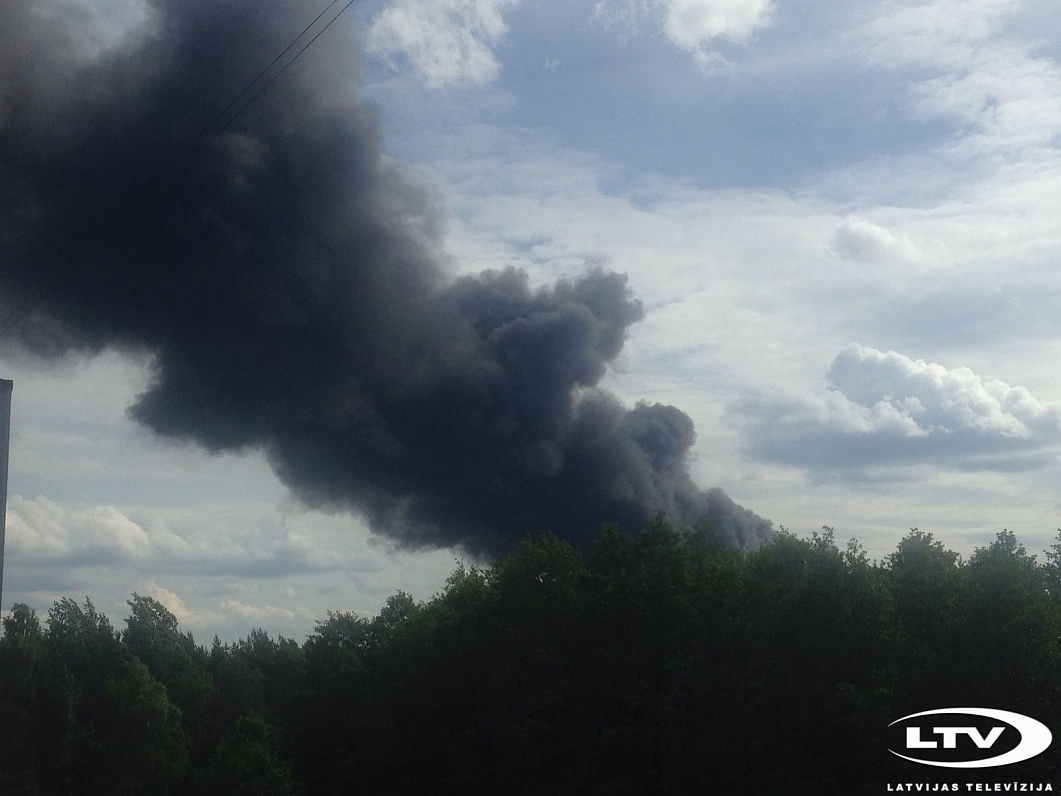In summer 2017, the waste caught fire, and tens of tons of plastic burned, with the smoke seen in clear sight from the capital Riga, more than twenty kilometers away.
Skog told Dagens Nyheter in December that, in her opinion, Sweden should change its waste management regulations, and stricter regulations should be introduced across Europe so that recyclable waste is not being sent to other countries without any proper reason and would not store up in illegal dumps.
"If it turns out that waste in Sweden is stored in an illegal way, that this waste is exported to companies that are not honest and are not recycling it, then it is very serious. I am very disappointed in the system," said the Swedish official.
"I would like to say to people affected in Latvia, that I really regret this," she told the daily.
Meanwhile Santa Valuma, the aide of Environment Minister Kaspars Gerhards, said that the Swedish minister plans to launch talks on stricter regulations in the country’s waste management and control.
As reported, a highly dangerous fire started in the Sloka area in Jurmala in June 2017 as plastic waste caught fire. Flames spread over the area of 1.2 hectares and consumed also a hangar. The fire that released dark clouds of potentially hazardous smoke was put out the following morning. About 23,000 tons of waste were stored in the illegal dumpsite.
The Swedish Environmental Protection Agency confirmed that plastic waste had indeed been shipped to Latvia for recycling, but that their intended destination was Aggregare, a company based in Loja in the region of Seja, and not Prima M in Jurmala. How the shipments ended up in Jurmala remains unclear.
The Swedish government agency explained that clear plastic waste fractions from sorting plants are classified as non-hazardous waste. Such waste ships as "green listed" waste between EU-countries without control of the authorities, but with a special movement document.
The agency assumes that in this case the waste has been moved without following the procedures for "green listed" waste from Sweden. The agency also said that the copy of the transportation document it had received from the Latvian Environmental Service filled incorrectly and that the agency was waiting for the delivery of copies from the waste producers.
Inga Kolegova, the head of the Latvian State Environment Service, said earlier that under the applicable EU regulation, it was the obligation of the country, which had sent its waste to another country, to either take waste back or to pay for the clean-up operation.
The clean-up operation was conducted by Clean R. The government hopes to recover the cost worth €550,000 from Prima M, the company that operated the dump in Jurmala.
The Economic Crime Prevention Department of the State Police is investigating the case based on three paragraphs of the Criminal Law: pollution of soil, forests and waters, pollution of air and violations of waste management regulations. Three persons are being investigated as official suspects for violations of waste management regulations that have led to significant damage to the environment, human health and property.
Lucija Uzklinge, a board member of Prima M, the company that operated the illegal dumpsite, confirmed to BNS that she is one of the three suspects in the case. Uzklinge refused to discuss the other two suspects, saying only that these are employees of another enterprise that was involved in Prima M’s operations at that time. Uzklinge said she and two other persons are being suspected of unlicensed business activity, not causing the fire.






























